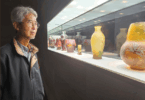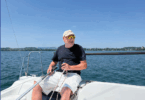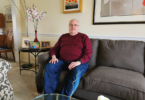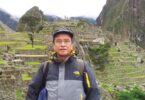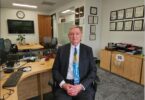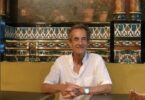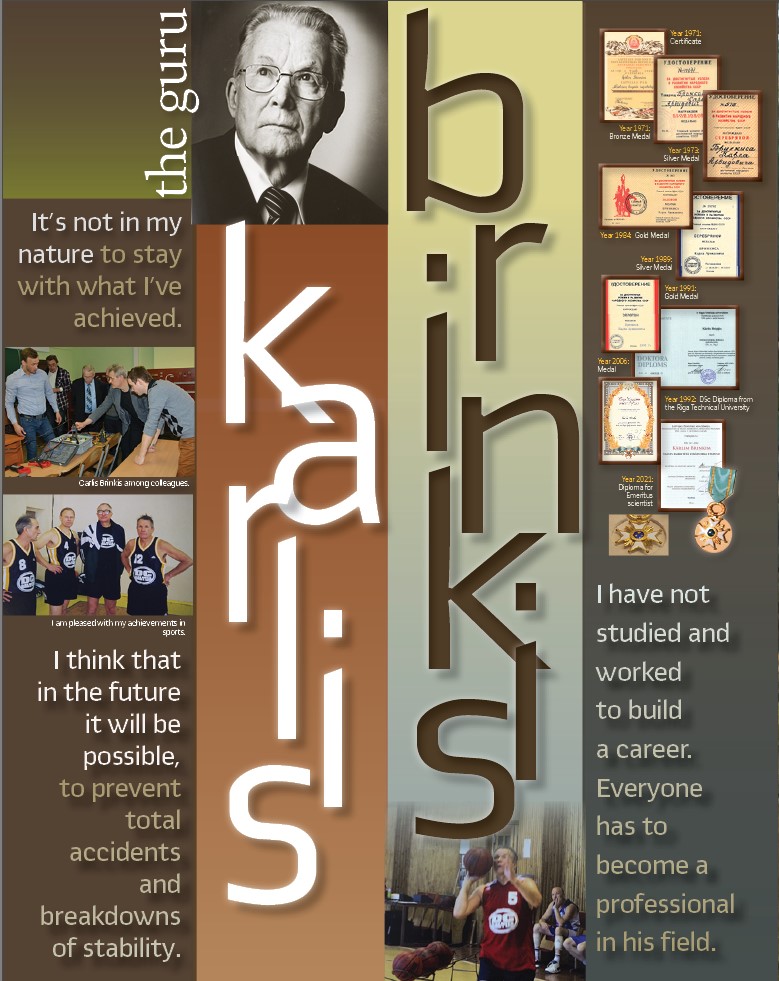
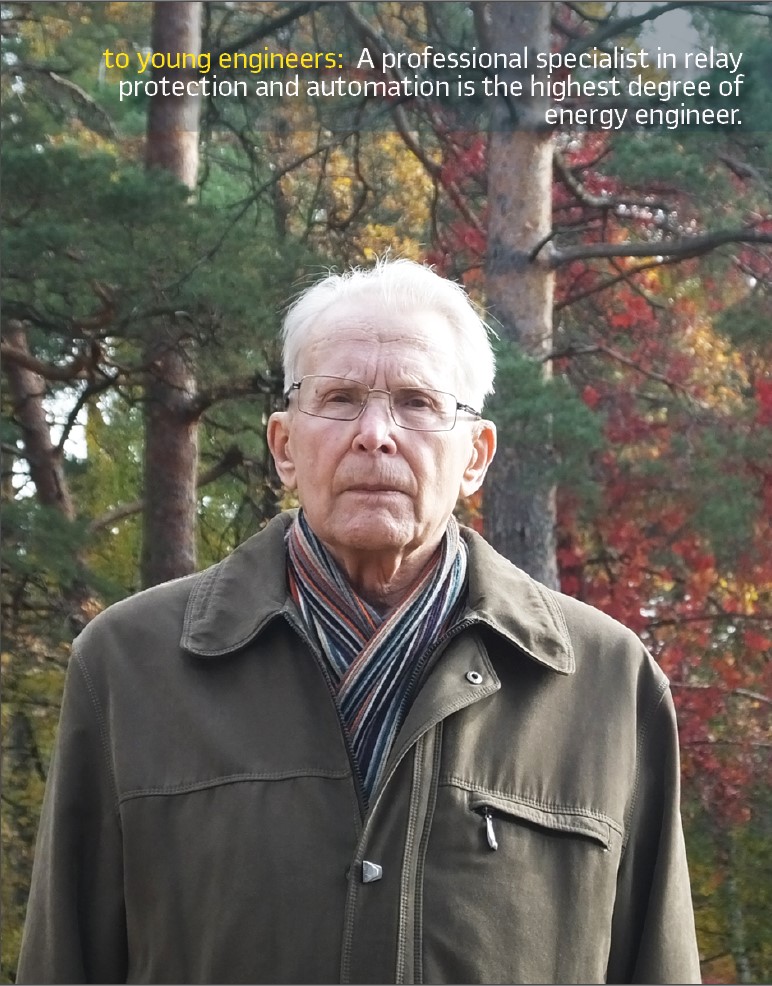
PAC World: When and where were you born?
K.B.: I was born in Lithuania, in Papile parish on 2nd January 1931. In this world, I applied faster than nature had planned. I was supposed to be born on March 2nd, but I hastened two months earlier. My brothers and sisters were born in Kaunas, but I was different. At that time, the family had a tradition of going to visit relatives in the countryside during Christmas time. The 12-kilometer-long road with sleds had left an impact on my mother’s pregnancy. So, my health did not allow me to live the life of a regular child. When I was little, I suffered from the fact that my brothers and sister skated, skied in winter, but I laid in bed for months with pneumonia or bronchitis. As a result, I was not allowed any physical activities in the fresh air during winter. I was deeply distraught by this situation. I was forced to look for other ways to spend my free time – I would read a lot.
I tried to make up for the lost time during the summer. It was the only chance to make up for winter losses! In Kaunas, I was treated by a good doctor, who, having assessed the situation, had told my parents: that the boy by 13 years, has grown up to the height of an adult man, but the other systems of the body do not keep up with it and it remains to wait patiently. That was it. After reaching 15 years, I stopped getting sick.
PAC World: Where did you grow up and where did you go to school?
K.B.: From my birth till the year 1938, I lived in Kaunas, where my father had built a one-story house, and from autumn 1938 to summer 1940 – in Panevezys, where my father was assigned to create a new military aviation airfield. My mother worked there as a teacher in a Latvian school in the vicinity of Birzi. My brother Imants and I studied at Panevezys Elementary School. After the occupation of Lithuania, my family returned to Kaunas in the autumn of 1940.
After 4th grade on, I entered the gymnasium in Kaunas, where I studied until May 1944, when teaching was interrupted due to the approach of the front to the city. Without a father, the family moved with relatives to the countryside. In June 1944, my father visited us and invited us to drive to Hamburg, Germany, where he was transferred with the staff of the Kaunas airfield. My mom categorically refused to go there, although my father had already transferred all his belongings from Kaunas to Germany. Since my father, as an aviation mechanic, was drafted into a special unit, returning to Kaunas threatened him with the arrest by the Soviets. Father changed his year of birth, grew a beard and in 1945 began working at the Land Bank in the city of Akmene.
My brother and I started studying in Akmene Elementary School, which I graduated with excellent marks in 1947. There was no secondary school in Akmene, but since several of my relatives, evading persecution had already moved to Latvia – to Auce, where there was a secondary school, my parents agreed to my desire to enter Auce Secondary School. I lived with my father’s sister and graduated from school in 1950 as an excellent student. However, I did not receive the medal because I was not a member of the Komsomol.
PAC World: Did you have any specific interests while in school?
K.B: At Auce Secondary School, I was elected to be a leader of a physics group, and together with its members we participated in the electrification of one farmhouse. I wrote articles for a local newspaper. Under the influence of my uncle, who was a carpenter and blacksmith, I made a wooden treadle lathe, with which I rolled out chess pieces for myself.
After graduation, I was allowed to hand over this lathe to the Secondary school, and the physics teacher rolled gymnastics cobs on it for the girls.
PAC World: Can you think of someone in your childhood that influenced your decision to become an engineer?
K.B.: It’s not in my nature to stay with what I’ve achieved. I’ve always wanted to start something new. During my schooling years I liked to work with a plane, and one winter my uncle gave me ash boards to make neat skis myself. He gave me a magazine where it was shown how the skis should be made, so I followed the drawing, with the whole groove at the bottom. We bent the ends by pre-boiling the boards in a large cooking pot of pig potatoes. My uncle acknowledged the work as successful and told my parents that I could be a good carpenter and advised to send me to carpentry school. But my parents knew I had a clever head, and I was good at learning.
I remember a case from the times of Kaunas gymnasium. In the 5th grade, geography was taught to us by a teacher who believed that he could only give the highest mark of “5” to himself. But I had a knack, without particularly learning, to remember two, three pages exactly by heart with the help of visual memory. I coaxed my benchmate before replying, “You’re following along now, I’m going to try to answer exactly from the book.” When I had answered four pages, the geography teacher was forced to give up – he gave me five with a minus. I wasn’t satisfied however, and I asked my friend, “Did I skip anything?” “No, friend confirmed, you didn’t miss anything.”
Therefore, my parents felt that I needed to get an education, and my uncle’s desire was not supported by them.
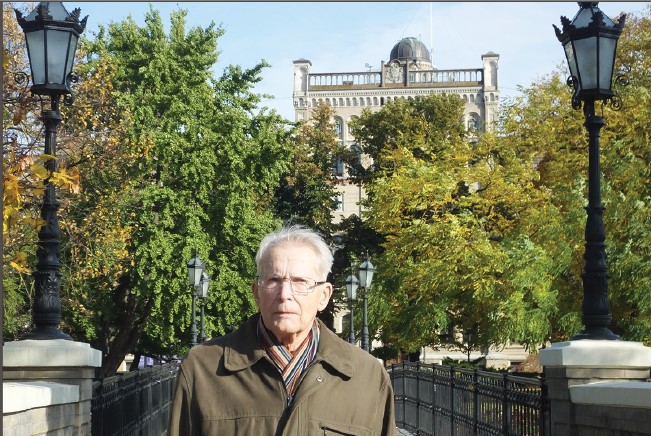
PAC World: Where did you go to university and why did you choose that one?
K.B.: I studied at the Faculty of Mechanics of the Latvian State University, where in 1950 and 1951 only 25 applicants per year were admitted. In the 1950s, all the places of the applicants were occupied only by medal winners, so I was not accepted. I was offered a peat extraction specialty, but I refused.
I entered the university in 1951, when I was already working at Latvenergo Augstsprieguma network. At that time, I was not allowed to study and work at the same time, but I was allowed to attend lectures from 8.a.m. till 3.p.m. at the workplace and to do the work in the afternoon.
PAC World: Why did you study electrical engineering?
K.B.: Maybe I was impressed by what I experienced as a child.
It happened in the beginning of July 1937 in Kaunas, in the neighborhood of Aukstoya Freda nearby which today is known as a rich district of the city. Nearby are the steep banks of the Nemuna river with washed-out, tree-covered cliffs. The event I experienced when I was six was really scary. My father had gone on a business trip. In the middle of the night, mother raised and dressed all of us children (me, brother and two-year-old sister). We sat and watched lightning bombs rushing from the clouds to the ground. Not falling, but rolling, and there was a feeling that they were rolling as if from an invisible mountain.
When the bullets came into contact with the ground, they bounced into the air, then again and again, as the third rebound went out.
The main thing is that there was a complete wind lessness outside, so the lightning bombs did not blow away and they could be rolled to the ground. It was raining, incessant thunderstorms were audible, and the entire horizon was filled with illuminated globular formations unbroken late and, illuminating the night on a bright day.
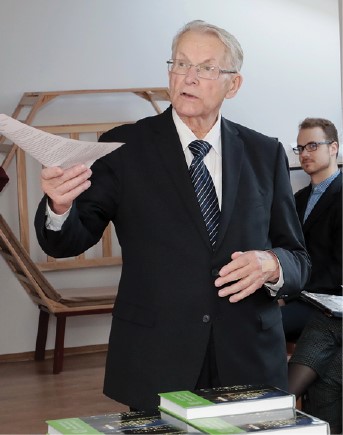
Here, at one point, we all started yelling loudly as one such bullet permeated with static light through the chimney rolled into our room as well. The fiery ball jumped through the stove door, hit the ground, then got to the table, and disappeared through the windowpane. The glass remained untouched. We all shuddered in the corner and my sister began to cry as the sight was horrible.
PAC World: Did you study power system protection?
K.B: I studied in the specialty “Power grids and power systems.”
PAC World: Did you have any interests other than learning at that time?
K.B.: As I had to work 8 hours and I had to study at the University from 8. a.m. till 3.p.m.no other interests were allowed to me, except during summertime.
PAC World: How and where did you start your career?
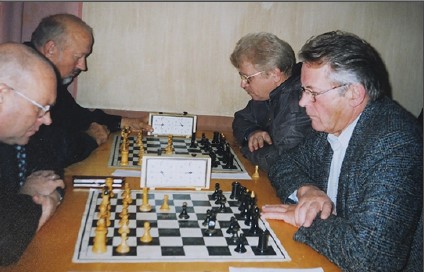
K.B.: I have not studied and worked to build a career, because first of all everyone has to become a professional in his field. I must admit that to move to a higher degree of energy system management system, I was invited by the Chief Dispatcher of Latvenergo Yakov Barkan, who participated in the formation of the Joint Dispatching Authority of the North-Western Power Systems of the USSR in Riga in 1961.
PAC World: You worked for more than 30 years at the USSR North. What were your responsibilities there?
K.B.: Yes, I worked for 30 years in the North-West Joint Dispatching Authority of the USSR as the chief of the Relay Protection and Automation Service, ensuring the safe and stable work of power systems in emergency situations, as well as preventing stability breakdowns along transmission power lines. I regularly participated in meetings of the Scientific and Technical Committee of the Soviet Union on issues related to the protection of relays and the assessment of the conformity of automatics with the requirements and norms of the time in order to prevent the origin and development of total accidents.
PAC World: Why did you decide to continue your education while working at the same time?
K.B.: This decision was connected with the needs of everyday life. We were four children in the family, and there were not enough financial resources to sponsor our studies. However, everyone got a higher education, and I was the first to get it.
PAC World: What was the most challenging moment during this period?
K.B.: It was difficult to do course papers, all of which had short terms. Since studies and work at Latvenergo facilities took up all the hours of the day, the training projects had to be carried out overnight in order to defend them during the day and receive the right to take session exams.
I remember that a friend and I had an invitation to celebrate the New Year. We both defended all the projects on the course but hadn’t slept for several nights. We decided to take a little nap but woke up only in the afternoon of the next day, shocked that we could not meet the New Year with friends.
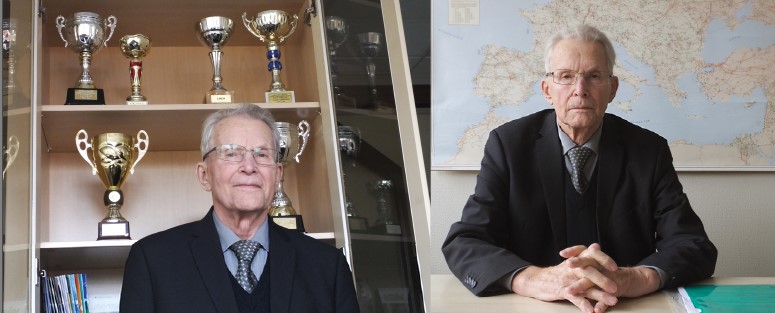
PAC World: And what was the most satisfying moment during this period?
K.B: While I was studying at the University, I was working at the same time at AST. Studying in the day department meant exemption from service in the Soviet armed forces. I felt that the time spent in the army was irrevocably loss to my life.
I was lucky enough to find myself in the AST relay service team, where everyone was intelligent, responsible and knowledgeable colleagues who helped me to develop as a person as well. I had gotten into a collective where you are not taught but exemplified how to live. For those five years I was in graduate school from eight until the afternoon, then went to work, where until eleven in the evening I worked in a brigade that inspected relay protection equipment and carried out preventive inspections of it.
Only Sundays were left for training, course projects often had to be prepared at night. At the University, I studied in a group where 25 of the students were high school or technical school superintendents, and half of them were still working (including me). We were so busy that we had to develop our own “feeding” system. It was not possible to stand in line in the canteen during the dinner breaks, so one of the group – the man on duty – left the lecture to set the table for the whole group. One was a cashier who collected money and handed out to a duty officer who was different every day. He had to buy everyone lunch and serve. So, we got warm lunch in 10 minutes, because for the workers this was the only opportunity to eat well once a day. It was from 1951 to 1955.
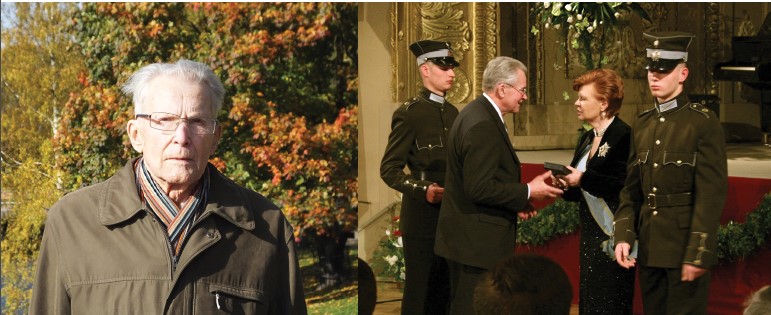
PAC World: You have been actively involved in the Latvian Energy Society (LEB) and the Latvian Association of Power Engineers and Energy Constructors (LEEA) for a long time. What is your role in in it?
K.B.: After the restoration of the status of an independent state, Latvia also had to restore public organizations, including in the energy sector. The Latvian Society of Electrical Engineers was established, but in 2006 it merged with the Latvian Association of Energy Builders (LEBA) to form the Latvian Association of Electrical Engineers and Energy Builders (LEEA). From 2006 to 2019, I was appointed Executive Director of LEEA. As an independent body, LEEA is composed of a Specialized Certification Center, whose activities cover the regulated and non-regulated spheres.
PAC World: What was the impact of Latvia’s independence on your work?
K.B.: After the restoration of Latvia’s independence, the opportunities to visit many countries of the world and communicate with professionals and specialists of these countries in the energy sector expanded significantly.
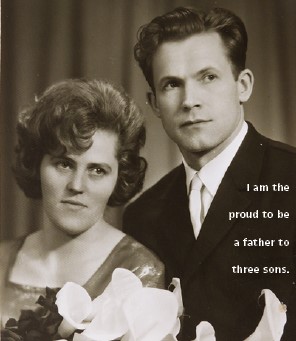
PAC World: You have been involved in the transition from electromechanical to microprocessor-based protection. What do you think about the ongoing digitization of the electric power grid based on IEC 61850?
K.B: I have only been involved in the field of relay protection of microprocessor equipment in the selection and application of settings in anti-accident automation equipment.
PAC World: What is the greatest challenge you faced during your professional career?
K.B.: The biggest challenge for the application of microprocessors was to achieve a significantly faster effect to prevent stability collapse along the transmission power line with anti-accident automation. (a patent as of 2022.)
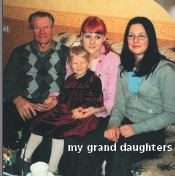
PAC World: What do you consider your greatest professional achievement.
K.B: This can be said about the separation of the Baltic Energy System Association from the unified power grid of Russia.
In order to separate the combined energy system of the Baltic States from the unified power grid of Russia, preparations had to be carried out in advance and I was appointed the head of this experiment.
From the point of view of the large, unified energy system, this experiment was complex enough. Eight 330 kV transmission power lines were disconnected in the electric ring, which means that the electric ring of the Russian side loses its original degree of safety. Inconsistency regarding the conduct of the experiment on the part of Russia required great effort and perseverance from dc “Baltija.” Initially, the CDP of the Unified Power System of Russia agreed to the need for an experiment, but when the program was prepared and an application was given to start the experiment, Russia refused the experiment 5 times (starting in 1997).
Still, without losing our last hopes, we worked to build contacts with each other. Finally, in 2006, a discussion was held in Moscow on regulatory issues, which gave me the opportunity to speak. I took the opportunity to complain, and, in my speech, I outlined the goals of DC “Baltija,” our preparedness and opportunities that could be clarified and used during the experiment in Russia, because they themselves had never conducted such an experiment. After the conference, there were also private conversations and, as a result, we were promised to do everything so that we could conduct such an experiment in April.
PAC World: Can you tell us about this historical event?
K.B.: April 2006 came with great excitement. All six 330 kV transmission power lines were disconnected, and the last remained a 330 kV link with Polotsk in Belarus and a 330 kV power line to St. Petersburg. They were cut off after obtaining permission from Russia’s Central Dispatcher authority.
After disconnecting, problems in frequency tuning began on our side. The power supply to consumers was not interrupted. When working in a large power system, the frequency is much more stable. There was no automatic frequency regulation in the power system of the Baltic States, it had to be maintained by DC Baltic dispatchers using instructions in the experiment program. The experiment occurred at lunchtime, when loads decrease, so in order to maintain a constant frequency, it was necessary to continuously regulate the generating capacities of power plants. For almost three hours, we operated in a detached – isolated mode, conducting all three intended experiments, including synchronization with the Unified Power System of Russia.
It was an outstanding event, but since in the five previous years the process of the experiment was delayed, then in order to avoid incidents, we were forbidden from communicating with the media. As a result, this significant fact went unnoticed by the general population.
Before the experiment, we visited all the power plants in Narva, Tallinn, Ignalina, Kaunas, Vilnius, Mazeiki, as well as the Plavinas HPP and the Riga HPP, but most importantly – the Ignalinas NPP agreed on the distribution of two dispatchers who would synchronize on the day of the experiment. In Ignalina, we tried it too and gained confidence that the right path was chosen. If we had not done this, then synchronization would not have taken place so convincingly without significant power fluctuations along the synchronized 330kV power line Ignalina NPP – Polotsk.
It took a lot of tension, because in less than three hours, DC “Baltija” dispatchers and I, as a driver, were sweating. The other colleagues had also come to the dispatcher’s desk, and everyone was delighted when it succeeded. The applause for the successful synchronization were genuine.
One of the conclusions came after we figured out how much electricity costs when working in isolated mode. Electricity was 30% more expensive, without providing the frequency within the required limits. We also understood that technological servicing of such a power system requires frequency regulation automation. We were aware of our future tasks, but did not manage to realize them, because in the autumn of 2006 DC “Baltija” was liquidated.
Today I regret that we did not manage to create a single Baltic energy system association that would be technologically ready for such a regime, even though we were so close to that goal. There were not only programmatic developments, but also the possibility of introducing such a frequency control system. Thanks to the Estonians, who believed that they were satisfied with the European model (each country is responsible for its own energy), we missed this opportunity. Today, every energy system operates autonomously according to the European model, but there is an evil that leads to total crashes in Europe’s energy systems from time to time. In Latvia, equipment intended for the safety of electricity supply has still been preserved, but as time passes, it becomes obsolete. Any anti-accident automation system needs to be replenished, improved, restored in accordance with the conditions in which the power system operates, but it is currently left to drift. Not so long ago, there was a situation when a 2400-megawatt power plant in Belarus was shut down, and the Power System of Latvia was very close to a total power outage. Now, at the governments level of the Baltic States, talk is resuming that a joint transmission operator of the Baltic region should be created. It is hoped that such a structure will be established.
Was there really such a good structure in place? Yes – very good and cohesive, with a strong engineering staff. Recreating the structure that was destroyed is no longer so easy. I believe that this will require a lot of effort and financial resources
PAC World: You have received many awards. Which one do you consider the most important to you?
K.B.: I have received honorary titles: Meritorious Inventor of Latvia in 1970, the most significant award of the State of Latvia “Order of the Three Stars” in 2006, the title of Latvian Emeritus Scientist in 2011.
The most significant for me is the Order of the Three Stars, presented by the President of Latvia Vaira Vike-Freiberga.
PAC World: Do you believe that we are going to see more artificial intelligence applications in the future grid?
K.B.: I won’t comment.
PAC World: Do you think it is possible to prevent wide area disturbances and blackouts?
K.B: Yes, I think that in the future it will be possible to prevent total accidents and breakdowns of stability.
PAC World: How do you see the future of our industry?
K.B.: In the field of relay protection and automation, moving from the technical equipment of the former Soviet Union to modern, it could be seen at a moment’s notice that it would not be possible to do without digital equipment. At the beginning of the awakening, it was possible to draw up a memorandum of intent together with representatives of Siemens and radiotehnika plant on the opening of a Siemens branch in the production premises of “Radiotehnika” in order to prepare the assembly of remote protection for the needs of the Baltic energy systems. Unfortunately, this issue could not be reconciled with all three energy systems of the Baltic States, and good intentions remained on paper. 30 years have passed, but it must be concluded with bitterness that without the “invention of a new bike” individually in each country, we do not yet know how to do without it. Without interstate cooperation, today industrial production cannot be developed at all. Let’s start thinking again!
PAC World: You have been working for more than 70 years. What keeps you going?
K.B.: I think my long-term ability is due to the fact that I have always been active in sports. I have never smoked and have not used alcohol for decades. The Finnish sauna for health measures is also definitely a positive impression.
PAC World: How do you balance your active professional life with your family life?
K.B.: I cannot claim to have always tried to balance professional life with family life.
PAC World: What do you consider your greatest personal achievement?
K.B.: I can be proud to be a father to three sons and have built a summer house with my own hands. I can also be pleased with my achievements in sports – mainly in chess, but also in volleyball and basketball.
PAC World: What do you like to do when you are not working?
K.B.: I’ve always thought that empty time runs fast.
PAC World: You have traveled to different countries. Do you have a favorite place?
K.B.: I have visited many countries on professional business trips: the USA, Canada, Mexico Scandinavian countries, Germany, Switzerland, Italy, Hungary, Romania, as well as Thailand and Cuba. Niagara Falls in Canada has been imprinted in memory.
PAC World: Do you have favorite music?
K.B.: I can’t say that I love music, although I like the songs of the Latvian composer Raimonds Pauls.
PAC World: Your favorite form of entertainment?
K.B.: I love playing chess because everything that happens around is forgotten during the game.
PAC World: What is your favorite food?
K.B.: Lithuanian national dish “Cepelinai”, which can be ordered and enjoyed everywhere in Lithuania
PAC World: Is there anything you would like to say to the young PAC engineers around the world??
K.B.: A professional specialist in relay protection and automation is the highest degree of energy engineer.
Biography:
Karlis Brinkis graduated with electrical engineering degree from the University of Latvia in Riga in 1956, with a specialization as a power station, grid and system engineer, He then received a PhD degree from the Riga Polytechnical Institute in 1970, followed by a Doctor of Science degree from Riga Technical University in 1992, He started his career with Latvenergo AST and later joined the USSR North-West United dispatch center where he worked for 30 years becoming the Relay protection and automation department chief. From 1992 to 2006 he worked at the Estonian Latvian–Lithuanian joint venture Baltic Power System Dispatch Center, as Relay protection and power conditions department chief, Technical director deputy of the power system and operational control problems. In parallel he served as the Riga Polytechnical institute and Riga Technical university public examination commission chairman for power system and automation. He was also actively involved with the Latvian Energetics society (LEB) and later the Latvian Association of Power Engineers and Energy Constructors (LEEA) as chairman of the board from 2007 to 2020. Karlis is the recipient of many awards, including Latvia’s Order of the Three Stars.



